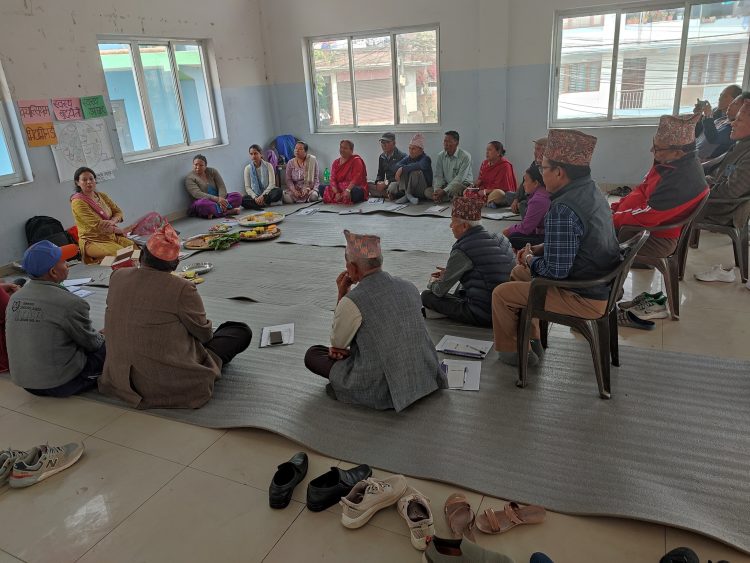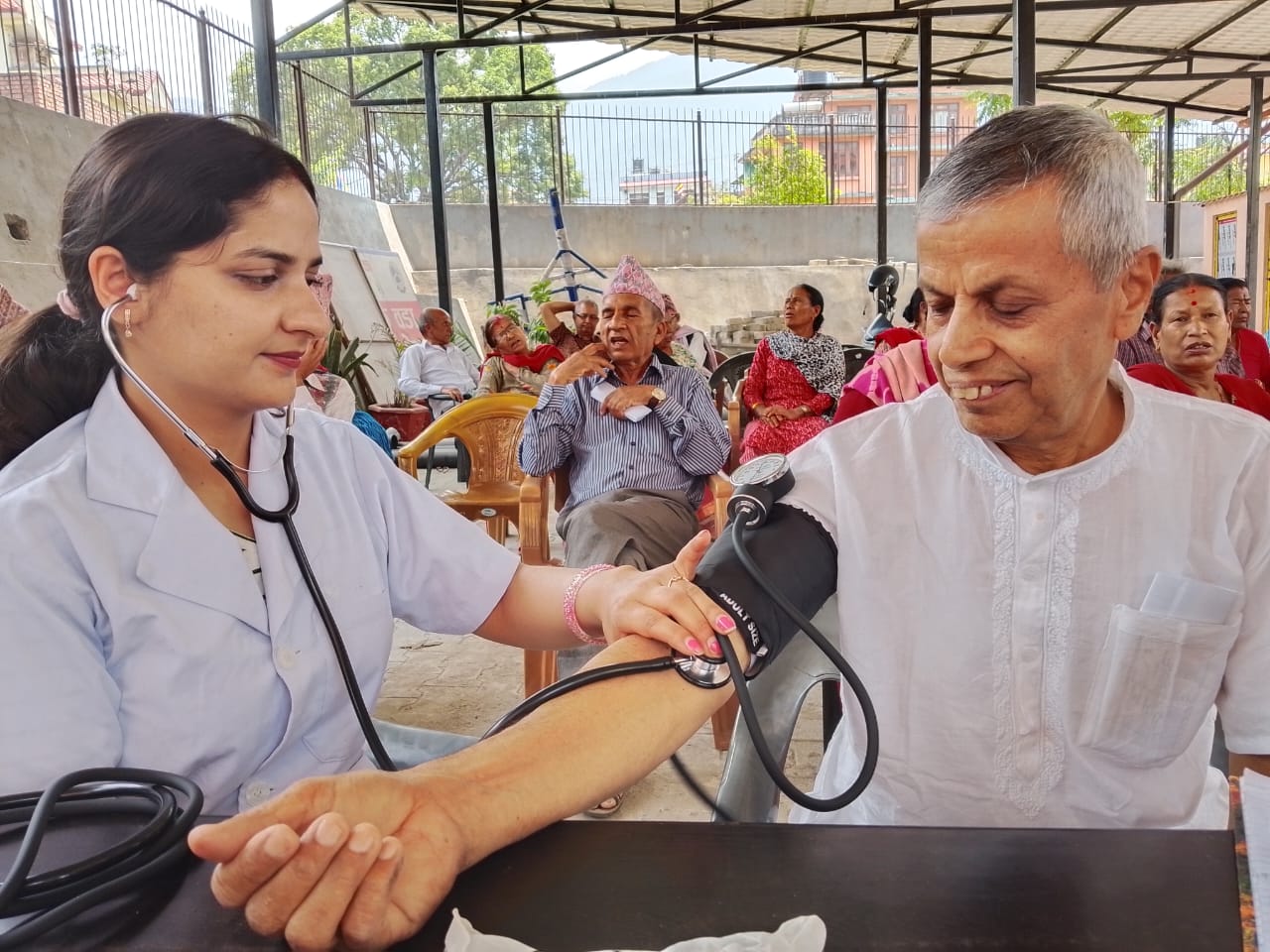In Nepal, HelpAge network member Ageing Nepal is leading a pioneering initiative to put self-care in the hands of older people. With support from a grant through the network-led HelpAge Healthy Ageing Platform, the organisation has adapted and rolled out self-care training using HelpAge’s guide. This is Nepal’s first project focused on equipping older people to manage their own wellbeing – a model that is already showing impact and potential for replication across the region.
A growing need for self-care
Nepal’s older population is growing quickly. Today, more than 10% of people are aged 60 and above, and this number is expected to nearly double by 2050. But as the population ages, traditional support systems are changing fast. Many young people are migrating abroad, leaving their older parents to live alone, often in rural areas with limited access to care.
“We are seeing a real shift,” says Sanju Thapa Magar, CEO of Ageing Nepal. “Older people can no longer rely only on their children for support. They need tools to take care of themselves, and that’s where self-care becomes essential.”
Introducing self-care to older people in Nepal
Thanks to a grant from HelpAge International, Ageing Nepal is running a pioneering project to introduce self-care training for older people. The initiative uses the Self-care for healthy ageing guide developed by HelpAge and adapts it to the local context, making it relevant and accessible for older people in Nepal.
“This is the first time a training programme on self-care for older people has been introduced in Nepal,” Sanju explains. “We translated and simplified the guide into a 30-page manual in Nepali, designed especially for two-day workshops.”
The training includes practical tips and exercises on nutrition, hydration, sleep, physical activity, mental wellbeing and more – all based on what older people themselves said they wanted to learn.
Training through day care centres
The training is being rolled out in Chandragiri municipality, Kathmandu Valley, through a network of 14 government-supported Senior Citizens day care centres. Participants include older men and women, some in their 70s, 80s and even 90s. Younger volunteers are also included to spread the knowledge across generations
After completing the two-day training, participants return to their day care centres and lead sessions on what they’ve learned, creating a ripple effect across the community. “They are not just learning – they are teaching,” says Sanju. “They are sharing tips, doing group exercises, and motivating each other every day.” Alongside this, monthly health checks are taking place at 14 Senior Citizens Day Care Centres, helping older people keep track of their health and take steps to remain healthy. This project is a complete package to promote the community based approach to healthy ageing.

Confidence, connection and community
Beyond improving physical health, the training is helping older people grow in confidence and reduce loneliness. Many are speaking in public for the first time, and their sense of purpose and connection is growing.
“This training is not just about staying healthy,” says Sanju. “It’s about helping older people feel confident, valued and active in their communities.”
The project runs until November 2025, with continued support and monitoring from Ageing Nepal to ensure that what’s being learned is being put into practice – and making a lasting difference.
“We are learning from older people too,” says Sanju. “This project is full of stories, strength and inspiration. It’s a journey of change, and we are proud to be leading it.”

